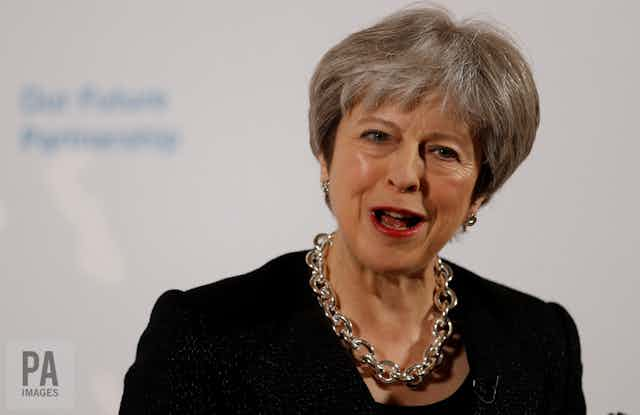After several weeks of high-profile speeches by government ministers, the UK is now apparently ready to “get on with it”, nearly a year after triggering Article 50 to begin Brexit negotiations.
In a bizarre mix of failing to address key issues head on and yet still making concessions on just how close the future relationship of the UK to EU will be, Prime Minister Theresa May has proved something most of us in the sorry Brexit saga have known for a long time – that Brexit in fact does not mean Brexit at all. It means something really rather different.
The European Court of Justice, that previously terrible snatcher of sovereignty in the Brexiteers’ eyes, will continue to have some kind of jurisdiction in the UK. Cooperation with and access to the single market – while being “different in the future” – will remain a central part of the UK-EU relationship. “Tough decisions” will have to be made not just about just how the UK leaves, but also, by about how much the UK remains entangled with the European project.
All of this was framed of course as the PM’s attempt to “bring the country back together”. A noble aim indeed. But we should pause before we give May too much praise.
After all, as former prime minister John Major noted, the simple binary choice of in/out in response to an incredibly complex series of questions produced a vote in 2016 to leave based on just 37% of the electorate.
That this result is an expression of the democratic will of the people is incontestable. But the other great democratic fact of the 2016 referendum is this: that those who voted remain, and those who didn’t vote at all actually make up around 60% of the electorate. They therefore represent a majority that did not vote for Brexit.
No, this does not mean we have to immediately overturn the result, nor that we necessarily need a second referendum. But it does mean that May and the rest of Brexit camp cannot afford to ignore this fact for much longer. As movements to resist Brexit both inside and out of parliament gather strength, the continued sidelining of this many people will not hold sway forever.
Don’t forget about the negotiation
In the interim between the joint report that May signed in December on withdrawal, the EU has continued to be, well, the EU, by producing the first stab at a treaty on withdrawal.
The draft withdrawal agreement is a classic EU document – the condensing of complex political organisation and change into something approaching a legal document. And yet May has offered no real response to this. That’s because she knows there can be no real response to this that would not upset the hard Brexiteers in her party.

But that is precisely what she will eventually have to do – respond to that document, formally and in legally realistic terms, and address the key issue of some kind of customs union that keeps Northern Ireland in line with the EU.
May is also perhaps beginning to realise that every simplistic Brexit promise and slogan that she has put out since becoming PM has been both entirely unrealistic and counter-productive. Her red lines, her talk of sabatours frustrating the will of the people – all of it solely aimed at appeasing the hard Brexiteers and cementing her grip on power – have served no interest other than her own in the UK or in the EU. Her apparently tough stance has failed to secure anything at the negotiating table.
Who’s getting on with it?
These are the realities May now faces, and understanding them helps explain the emollient tone of her latest speech. Despite not angering the hard Brexiteers, it did also manage to at least sound a note of compromise or conciliation.
One final word of caution though, as we reflect on this: it is all very well offering the hand of friendship, but for it to mean anything at all, it has to be the hand not just of May, but of the government and her cabinet.
Any message of cooperation is easily lost, we might say, if Boris Johnson is, during the same week as May’s speech, denigrating the seriousness of the Irish border situation, or if Michael Gove is wrongly suggesting the EU is holding the UK back from banning plastic straws.
May’s message is even less likely to get across if the rent-a-bile crowd of Brexiteers within her own party – Jacob Rees-Mogg, Iain Duncan-Smith, Peter Bone – are continued to be allowed to spread their hard Brexit message with abandon.
So yes, a softer tone was spotted, as the realities of Brexit really begin to bite. But there’s a long way yet to go in bringing back together a nation that May herself has contributed so much to dividing – doubly so if she continues to allow members of her government and party up carry on doing the same.

